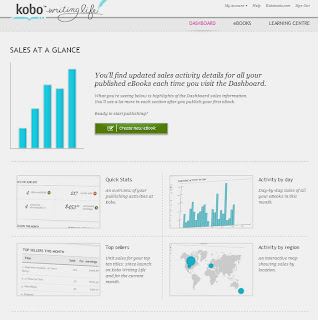This is what I'd like you to get out of this
How To Publish series: If the only thing holding you back from self publishing is fear, fear of failure, fear of the unknown, then my goal for you is that by the end of this series, you'll have taken the plunge and published something.
Remember, there's no rule saying you have to publish under your real name, you can use a pen name. The important thing is: If you want to self publish, if this is something that interests you, then do it! It is free and can be infinitely rewarding.
By the way, this post is part of my
How To Self Publish series (see Related Reading, below, for links to other articles).
Fear of Technology
It's natural to be hesitant before doing anything new but don't let fear of an unfamiliar process keep you from publishing your work. Self publishing doesn't require any special technical knowledge,
anyone can do it.
Later on in this series we'll step through how to publish your work on each of the major platforms: Amazon, Barnes & Noble and Smashwords. (I've published many of these posts already, links to them are below in the 'Related Articles' section.)
Self Publishing is NOT Vanity Publishing
It used to be that the only kind of self-publishing was vanity publishing but the two, today, are quite different. Vanity publishers were stigmatized, and rightly so, because they preyed on writers. Vanity publishers would charge the moon to publish your book and fail to place it with any reputable retailer so it was impossible for you to make your money back.
The end result of publishing through a vanity press was often a drained bank account and a basement full of books.
On the other hand, when a person self publishes with Amazon.com, for example, they will publish your book for free, but take a pre-agreed upon percentage of the sale, either 30 or 65 percent. This is the sign of a reputable publisher.
The rule of thumb is:
Money flows from the publisher to the author, not the other way around.
Note: Companies or people who charge a flat fee for specific services -- editing, formatting, cover art, and so on -- aren't publishers and so the above rule of thumb doesn't apply. Just like any business will need to pay for services (telephone, internet, hydro) so authors sometimes employ people to help them with certain tasks. That said, a writer doesn't
need to employ anyone to self publish.
If You Don't Try, You'll Never Succeed
There's one thing all successful people have in common, no matter the area: they're all failures.
No, that's not a contradiction in terms. Everyone who has succeeded has made many mistakes along the way. I believe it's a fundamental truth of human existence that in order to succeed we must first fail. No one succeeds at everything, so if someone isn't failing occasionally, they aren't trying. So don't let fear of failure stop you from trying something new.
I'm writing a book on self-publishing and have decided to pre-publish the draft chapters on my blog so, please, if you have any comments you'd like to make, please do! I would welcome the feedback. There are three was to contact me. You can comment on this post, you can contact me through the contact form on this site (use the 'Contact Me' tab on the upper right), or you can contact me through Twitter (@woodwardkaren).
Cheers, and thanks for reading. :)
Related Reading
Self Publishing on Amazon: Kindle Direct Publishing
How To Self Publish on Barnes & Noble
Self Publishing on Smashwords
Photo Credit:
Debbie Weil




















